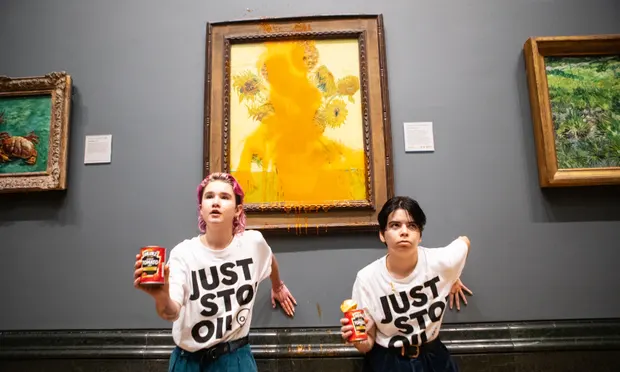Avatar 2 should make us completely rethink our relationship with the planet
This article first appeared The Guardian here.
The original Avatar was more than a movie. It was an event.
It was reportedly pulled from some theatres by the Chinese government for fear it could incite land revolts; slammed by the Christian right for its “anti-Americanism”; used eagerly by anti-extractivism and anti-colonialism protesters; elicited depression among those who left cinemas to face the impoverished Earth of our cityscapes; and I personally heard that it led some viewers to sell their 4x4s, leave the army and much, much more. This was no ordinary film.
After 13 years, the first of the Avatar sequels, The Way of Water, has finally hit the big screen. I hailed the original film as a powerful and timely piece of popular culture that starkly narrated and questioned the exploitation of nature for profit, and convinced viewers of the importance of resistance. The sequel is, once again, a film for our times. And one we can, and should, learn from.
At the heart of the film are huge, wonderful whale-like creatures, hunted ruthlessly – for the oily elixir of life that they contain – by the Earthlings that have returned to Pandora. The hunting scene in which an adult female is pursued to death in this way, and then mined for the oil, is one of the most soul-rending scenes I have seen at the movies.
While the humans and the Na’vi are at war in the film, we learn that these Pandoran “whales” have taken a vow of non-violence. And that they are wiser and much more emotional beings than any of us bipeds. What a magical thing for a blockbuster movie to dwell on, to show us.
Both Avatar films have at their centre processes of “education”, in particular for our avatars in the films to really learn from indigenous inhabitants. Could we be at a moment – deeper into ecological crisis than we were when the first Avatar was released – where we can learn similar things? Even, perhaps, from the whales and dolphins whose cultures (yes, they really do have cultures too) are in some ways more impressive than our own? I’m thinking of the way they stick together no matter what, forming super-organism communities beyond our fantasies of individuality.
Could The Way of Water provide a new opportunity for this kind of message to hit home? Avatar’s release coincided with the Copenhagen Cop summit, which was widely recognised as a failure. Thirteen years on, we have just had the damp squib of Cop27, agreeing in principle to compensate the global south for loss and damage from the escalating climate more-than-emergency, while also in effect heading towards more loss and damage through ever-higher climate-deadly emissions.
The biodiversity Cop that just concluded at Montreal, Cop15, has at least focused minds on putting nature front and centre, but the accord that was achieved there will be a paper tiger unless there is the will to implement it. The biodiversity Cop supposedly protects land and oceans; of these two, it is the latter that are, if anything, much more crucial, dominating as they do our “blue” planet. The pollution and acidification of our oceans in particular represent a potential existential threat.
At the end of the The Way of Water, the protagonist awakens to the idea that the ocean has become his home: “This is our home, this is our fortress. This is where we make our stand.” If aliens were to visit Earth, they would probably name it Ocean, after the habitat that covers most of its surface. Could the second Avatar film help enable us to make our stand? In a wise way, a nonviolent way, a way that sees beyond killing.
There is a magnificent scene earlier in The Way of Water when a young Na’vi who feels the closeness of the life suffusing the planet says that Eywa – the god of all living things, similar to our idea of Gaia – is “like a word about to be spoken”. I found this supremely evocative: of another world that is still possible, and which, on a quiet day, one can almost hear breathing.
When you leave the cinema, you need to bring this sense of the deeper-than-deep value and beauty of life with you. As you emerge – probably into artificial, nature-free streets – let yourself feel some sadness, and some grief at what is lost, and then some rising energy, and a compassionate yet fierce determination. To evoke that other world.
“Avatar-depression” will lift once we’re busy at work restoring the planet Ocean to be as beautiful as the unravaged parts of Pandora are.
As some reviews have already emphasised, there is much that is weak in the film, but let that not obscure something inside it that’s so strong. The real point is to make our stand; to try to attain the wisdom of whales, and the intelligence of indigeneity and of our own wisdom traditions. The Way of Water includes repeated teaching on breathing techniques and meditation, teachings that, as I watched, I found myself breathing along with. Is there any other mass-audience movie that has attempted anything like this?
As our own planet continues to die, listen deeply for the word that is about to be spoken. Maybe you can help speak it.


